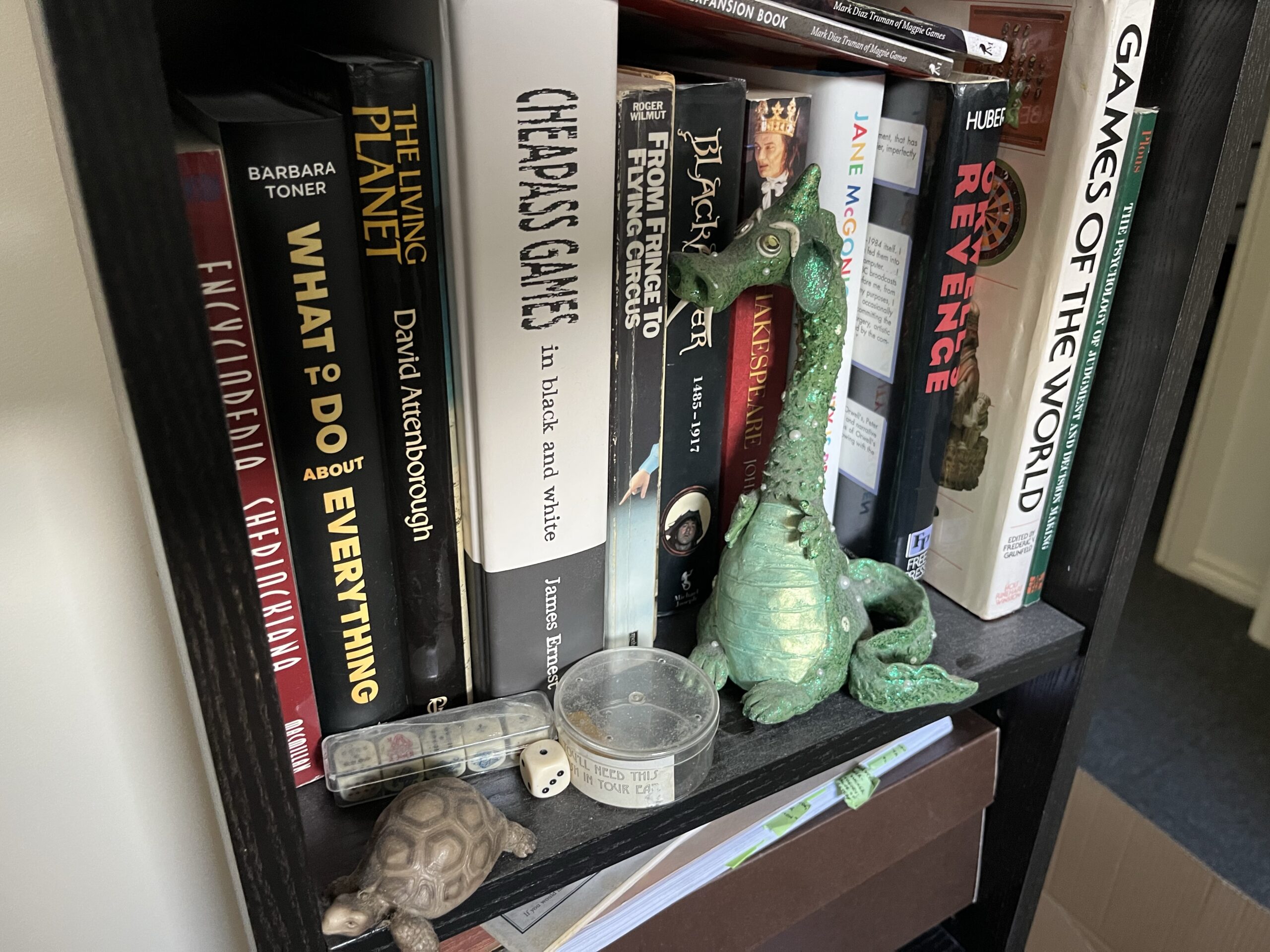#Pratchat50 – Salt Rat Arsenic Heat
Happy fiftieth episode to us! We’re celebrating with the return of our very first guest, comedian and author Cal Wilson! Cal joins Liz and Ben in the kitchen to brave the recipes within the 1999 Discworld side project Nanny Ogg’s Cookbook, co-authored by Terry Pratchett, Stephen Briggs and Tina Hannan, with illustrations by Paul Kidby.
After his latest books are forcibly withdrawn from sale, J H C Goatberger reluctantly decides to publish another manuscript sent to him by Nanny Ogg. He hires a few editors to “put in the spelling, grammar and punctuation” and has his wife vet it for anything objectionable enough to get the book banned. The result is Nanny Ogg’s Cookbook, a collection of Nanny’s own recipes, others she’s collected from around the Disc, and some of her wit, wisdom and advice – in particular when it comes to etiquette.
Published alongside The Fifth Elephant (see #Pratchat40), Nanny Ogg’s Cookbook is one of several “in-universe artefact” books for the Discworld. It collects around fifty or so recipes – minus a dozen or so joke ones – devised by Hannan. Pratchett and Briggs round out the book with Nanny’s advice on matters of life, death, flowers and everything in between. Paul Kidby provides some great illustrations of various characters, dishes and other glimpses of Discworld life.
What do you think of books like this, that bring a bit of a fictional world into the real one? Which of Nanny’s recipes would you try? How do her observations match up with your own experiences of life, love and…um..toilet seats? Do you want a sausage-inna-Bunnings T-shirt? And are you ready to see pictures of our efforts? (Probably not…) Join the conversation using the hashtag #Pratchat50 on social media.
Podcast: Play in new window | Download (Duration: 1:40:20 — 46.3MB)
Guest Cal Wilson (she/her) was one of Australia and New Zealand’s most beloved comedians. She passed away unexpectedly after a brief illness in October 2023, and is sorely missed. GNU Cal Wilson.
Cal previously guested in #Pratchat1 and #Pratchat3, talking about Men at Arms and Sourcery, respectively. In between she published two children’s books – George and the Great Bum Stampede and George and the Great Brain Swappery. Cal was also no stranger to podcasts; she guested on dozens, including StoryKids reading a young listener’s story, “The Gloomy Mist”. She was also co-host of Money Power Freedom with journalist Santilla Chingaipe for the Victorian Women’s Trust.
As usual, you can find notes and errata for this episode on our web site – including some photos of our culinary efforts! (Viewer discretion is advised.) And you can also find some more recipes from this book in our special “Oggswatch Feast” episode for 2021! (We might even do this again some day.)
December is a busy time for us! To further celebrate reaching fifty episodes, we’ve invited a bunch of great folks, including past guests, fellow Pratchett podcasters and more to cook a few more recipes for a special Hogswatch Feast episode! Watch out for it on Hogswatch day (i.e. December 25, Australian time).
We’re also recording our next episode very soon – December 17 in fact – and we’ll be discussing the next adventure for Tiffany Aching, 2006’s Wintersmith, with Australian fantasy author Garth Nix! So if you have questions, get them in “toot sweet”, as Nanny might say, using the hashtag #Pratchat51, or via email to chat@pratchatpodcast.com.
Want to help us get to the end of our six(ish) year mission and read every Pratchett book – and more? You can support us with a tip, or a subscription for as little as $2 a month, and that’s cuttin’ our own throats! See our Support Us page for details.



